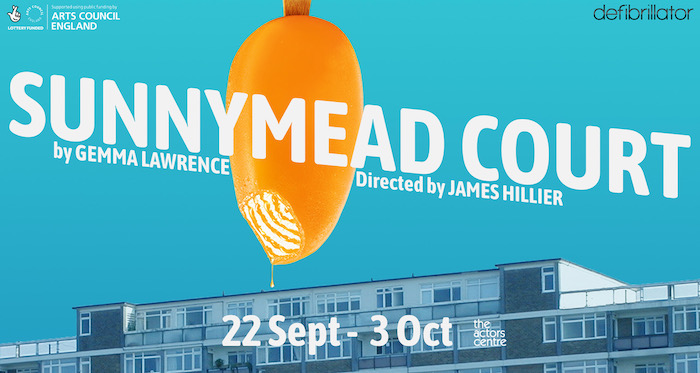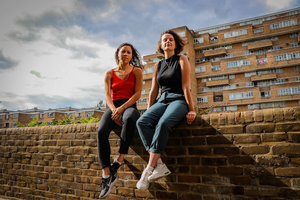Guest Blog: Director James Hillier on SUNNYMEAD COURT
A new queer romance draws on our lockdown desire to connect

Who'd put on a play during a pandemic? It's a lot of hard bloody work and at any moment the whole thing could fall apart around your ears. This virus doesn't respect art or ambition.
There are so many unknowns. Will anyone actually want to come and see the play? We've all been at home for six months and still have a season of Selling Sunset left to watch. You can't make any money from ticket sales, so how is anything going to be paid for? How can you possibly respond to what has happened in 2020: Black Lives Matter, Covid, a vacuum of leadership at the highest political levels, a world where connection is increasingly digital and real human contact has been locked down... Then you find out that the theatre who were brave enough to ask you to come and work with them might have to close at the end of the year because they can't afford to keep operating.
Despite all the questions and pitfalls, it feels more necessary than ever to use our imaginations, tell stories and collaborate on creating work that will entertain and bring joy into the world. We need to create and can only do that by leaning into the changes. There are new rules, so let's use them to fuel the work rather than inhibit it.
These are the fires in which Sunnymead Court has been forged. And the result is a beautiful, queer romance. An uplifting, funny play about two women in lockdown who are just trying to find a way to say hello. It's fun, innovative, sharp as a whip, and reveals Gemma Lawrence as a brilliant new voice in theatre. We have been very fortunate in that the Arts Council have given us a grant and it really is a dream to be making theatre again, although often at a distance and in quite a different way. To be collaborating with a group of actors and creatives towards a common goal is deeply satisfying.
The journey of Sunnymead Court is not a typical one. But then these are not typical times. The project started out in May, when Mitchell Reeve at The Actors Centre asked Defibrillator theatre company to create a socially distanced theatre experiment. Gemma, myself and Jack Holden were due to start work on another play at that time, so I called them both and asked if they were up for it.

in Sunnymead Court
And at that stage, back in the depths of lockdown, it felt like TOTAL madness. Cycling to a deserted central London, to look at the Tristan Bates Theatre. The thrill of having our first shop-bought coffee. Edgily standing apart from each other in the middle of Seven Dials in Covent Garden to talk about ideas, and realising that after 90 minutes, not a single car, bicycle or pedestrian had passed us by.
It's probably fair to say we all said yes, we'd do this thing together, but didn't really believe it would happen. But then the idea began to take shape. What might a play look like? Surely now, if ever, was a time to innovate and try new things. How would we make the experience one that was comfortable for an audience, despite all the necessary regulations around Covid?
We settled on a number of experiences shared in common from lockdown and 2020, and foremost of these was, in E.M. Forster's words, the human need to "only connect". Over the past six months, we have all gone through a shared experience, a common story about how we have lived without friends, family, loved ones and the difficulty of making new connections. Some will have had people taken away from them by the virus, not to return. No one is immune from this story, and as we begin to tiptoe back into a world where new connections are being made and old remade, this will be a cause of great delight, but sometimes feel overwhelming.
And that's why you put on a play in a pandemic. Safely, of course. It's a chance to connect. Connect with imagination. With inspiring actors, creatives and friends. With a live audience in a theatre. With strangers in a room who all have this shared experience. Only connect.
Photo credit: Jack Holden
Comments
Videos

